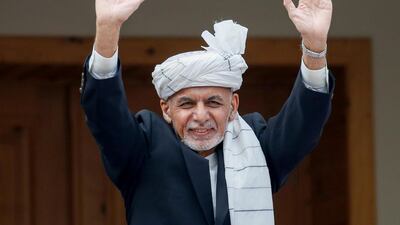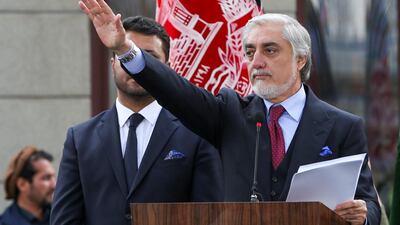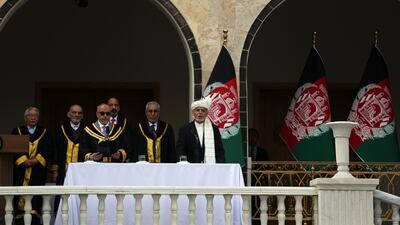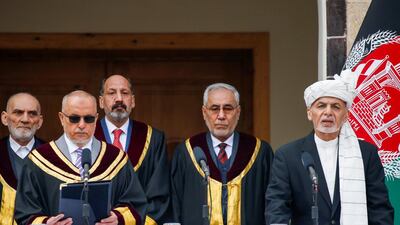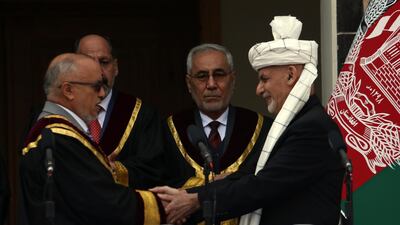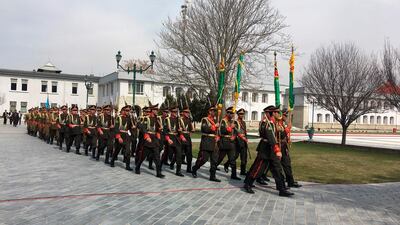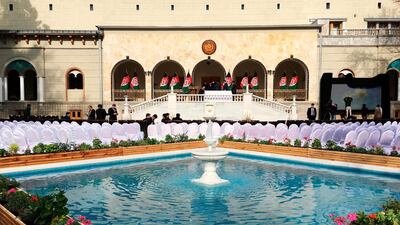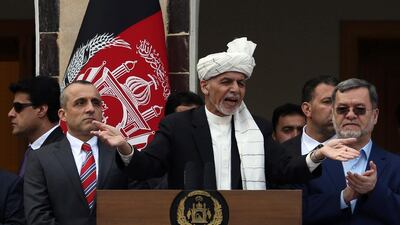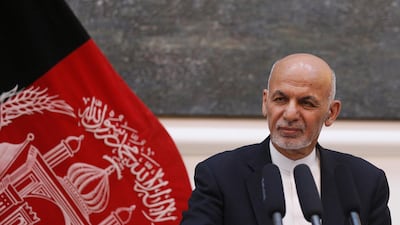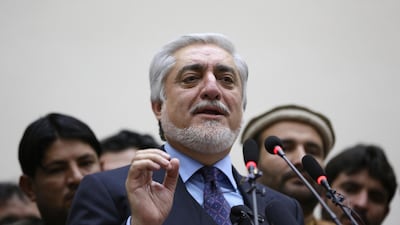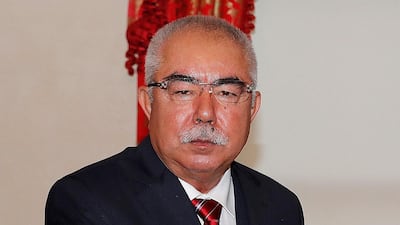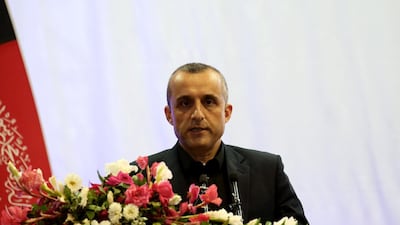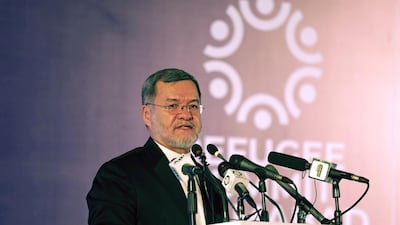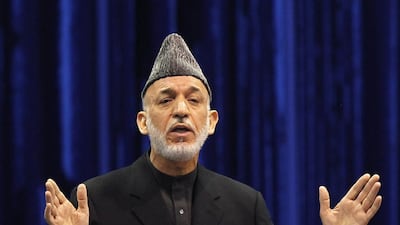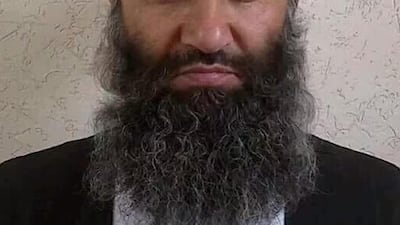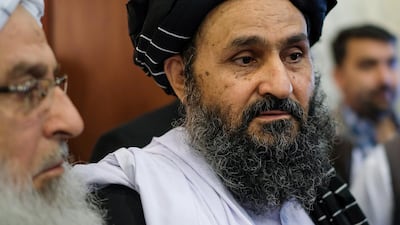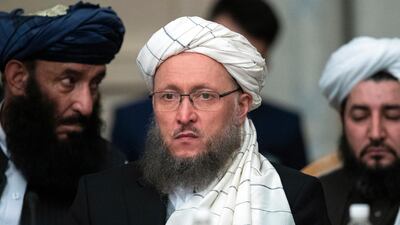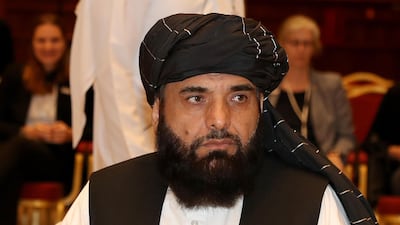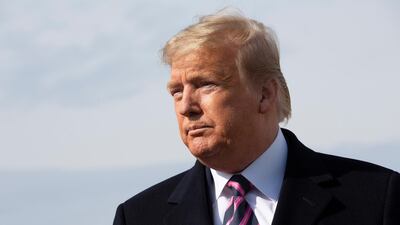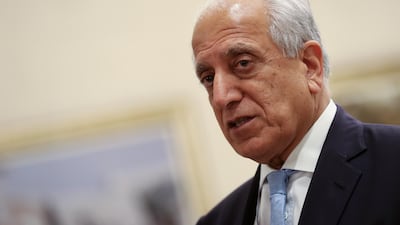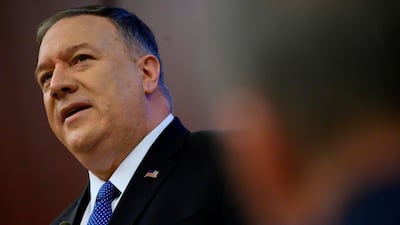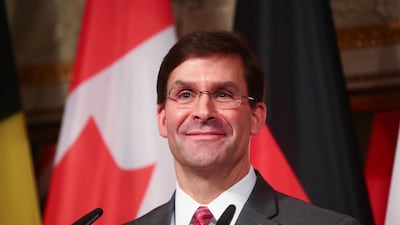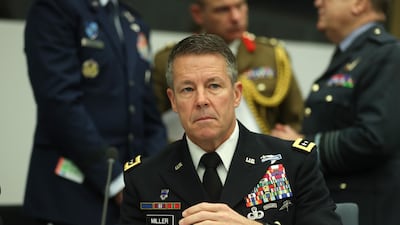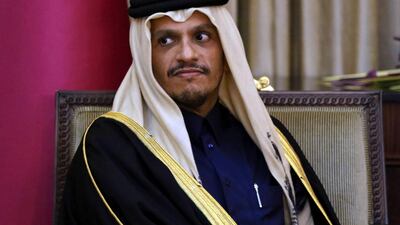Rocket fire was heard during the inauguration ceremony of Afghanistan’s incumbent president Ashraf Ghani on Monday, but did not interfere with his address. He was sworn in for a second five-year term on Monday afternoon at the Presidential Palace, hours after a planned morning ceremony had been postponed.
The sound of the blasts prompted some to flee, but Mr Ghani remained unfazed. "I have no bulletproof vest on, only my shirt, I will stay even if I have to sacrifice my head," he told the remaining crowd, as sirens sounded overhead.
Just behind the palace’s walls, Mr Ghani’s rival, Mr Abdullah Abdullah, held a parallel ceremony, taking the presidential oath at his Sapedar Palace.
The capital Kabul had essentially shut down, with security forces blocking and patrolling the roads and most people staying at home as an official holiday was declared.
The interior ministry later said the blasts were caused by four rockets that struck downtown Kabul.
No deaths were reported but "one police officer was slightly injured", ministry spokesman Nasrat Rahimi said.
The Islamic State group claimed the blasts, which mirrored a similar incident targeting a Ghani speech in August 2018 that injured six civilians.
Both Mr Ghani and Mr Abdullah had been in direct negotiations until earlier today, but came to no agreement.
According to Afghanistan’s independent election commission, Mr Ghani won the September 2019 elections with 50.64 per cent. Mr Abdullah came second at 39.5 per cent, but has disputed the validity of the results, that had already seen a five-months delay.
Both ceremonies were attended by hundreds of people, but Mr Ghani's ceremony drew in officials that included US special envoy Zalmay Khalilzad, US and Nato commander General Austin Scott Miller, US Ambassador Ross Wilson and representatives from the European Union, Australia, Canada, Denmark, Germany and Norway.
A joint statement released after a March 1 meeting in Doha attended by the US, European Union, France, Germany, Italy, Norway, the United Kingdom, and the United Nations affirmed all parties’ readiness to work towards implementation of an agreement that ends the war, contributes to regional stability and global security, and respects the internationally-recognised rights of all Afghans. The statement made clear that while they appreciate the Taliban joining a political process, the group is not recognized by the international community.

Several senior politicians, including Afghanistan’s former president Hamid Karzai did not attend any ceremony.
Earlier today, President Ghani offered 40 per cent of the cabinet to Mr Abdullah, as well as the chairmanship of the Supreme Peace Council, which is to directly negotiate with the Taliban during the planned intra-Afghan dialogue, but Dr Abdullah refused, stating that he was the rightful winner of the elections.
Key players to know in the Afghan peace deal
Wrangling over the election results threatens to bring political chaos to Afghanistan soon after the United States and the Taliban signed a deal on the withdrawal of US-led international forces after 18 years of war.
The Taliban called for the politicians to put the dispute aside and focus on preparations for intra-Afghan talks that are slated to take place this week, a condition of the peace accord between the US and the insurgents.
"We don't think they will make it to getting ready for the intra-Afghan talks on March 10, because of … the disagreement between the politicians that is even leading to two swearing-in ceremonies," Taliban spokesman Zabihullah Mujahid said.
"Instead of swearing in, we want them to focus on intra-Afghan talks. We call upon them to leave the internal disagreements, stop the swearing in, and work for peace."
The Taliban spokesman said the deadlock meant that that no practical steps had been taken to effect implement the release 5,000 Taliban prisoners, another condition of the US-Taliban agreement. Mr Abdullah has supported the prisoner release, which will see the insurgents set free 1,000 of their prisoners in return, but Mr Ghani has rejected it.
Nevertheless, meetings between prison officials from both sides took place in Doha on Saturday and Sunday, Mr Mujahid said, the first known contact between Afghan government officials and the Taliban since the February 29 agreement.
He said the meetings covered technical aspects of the prisoner release, such as preparing a list of detainees and their identifying details.
Mr Ghani and Mr Dr Abdullah are old rivals who both held roles in the previous government under a power-sharing agreement brokered by the US to resolve their dispute over the results of the previous election in 2014.
